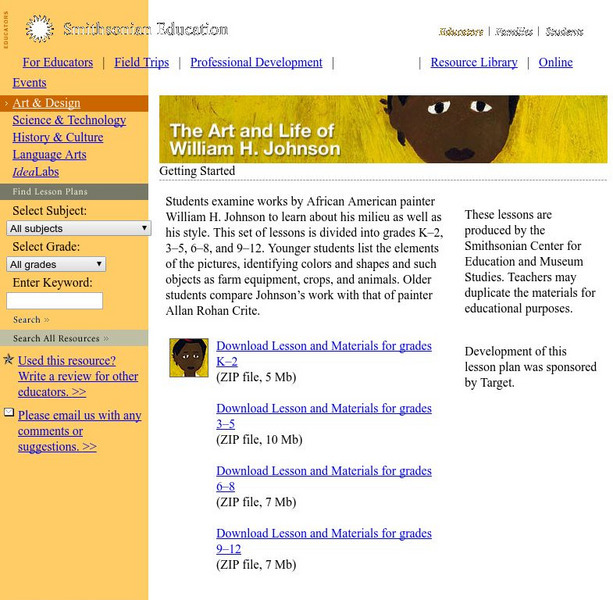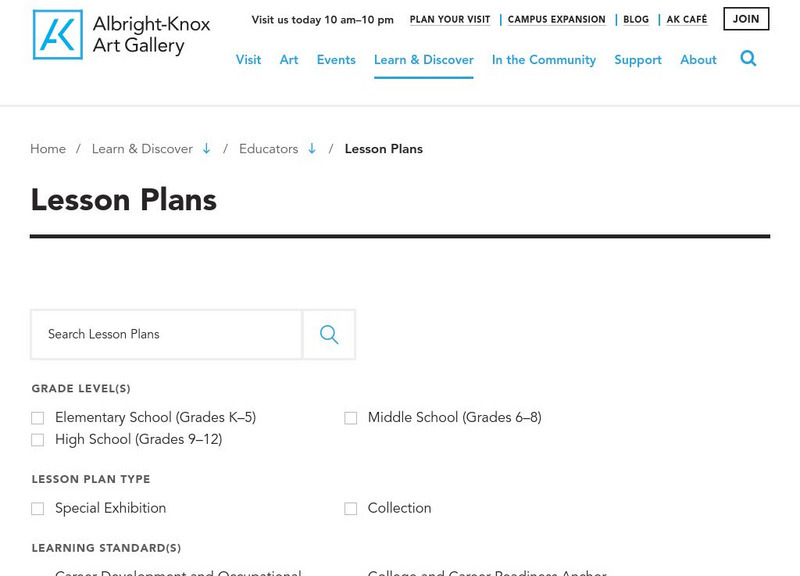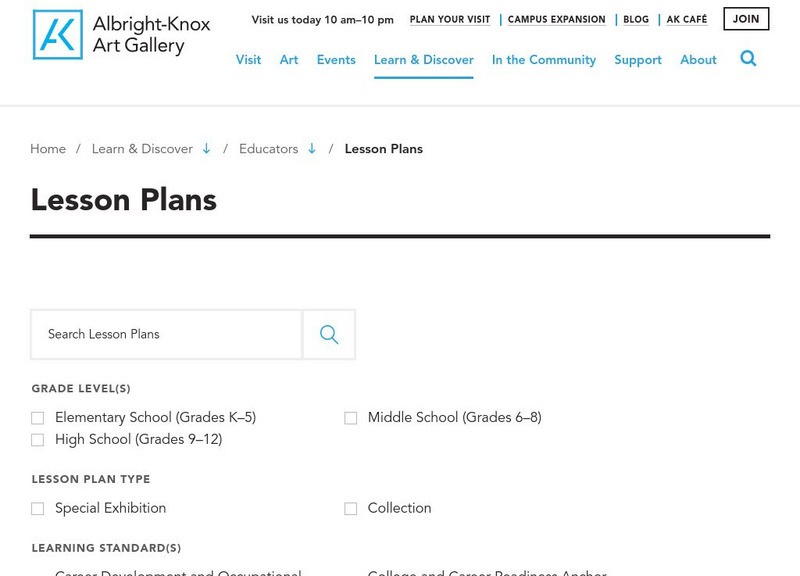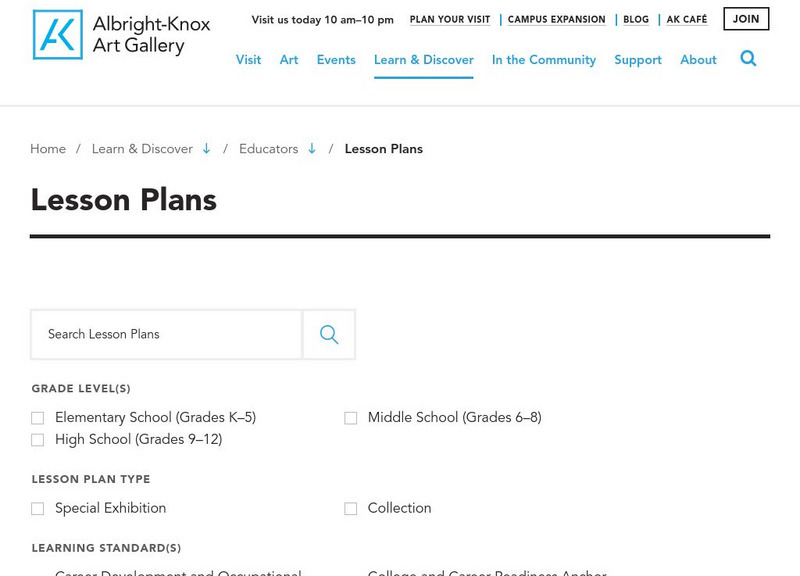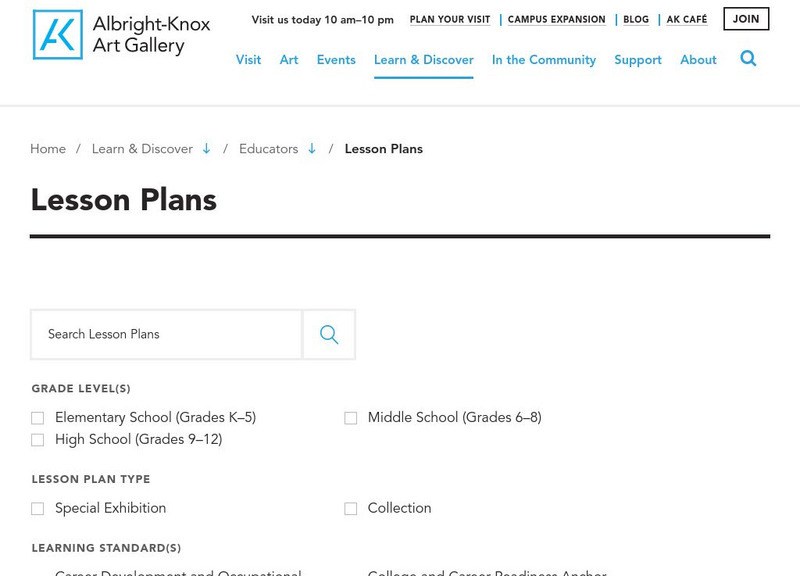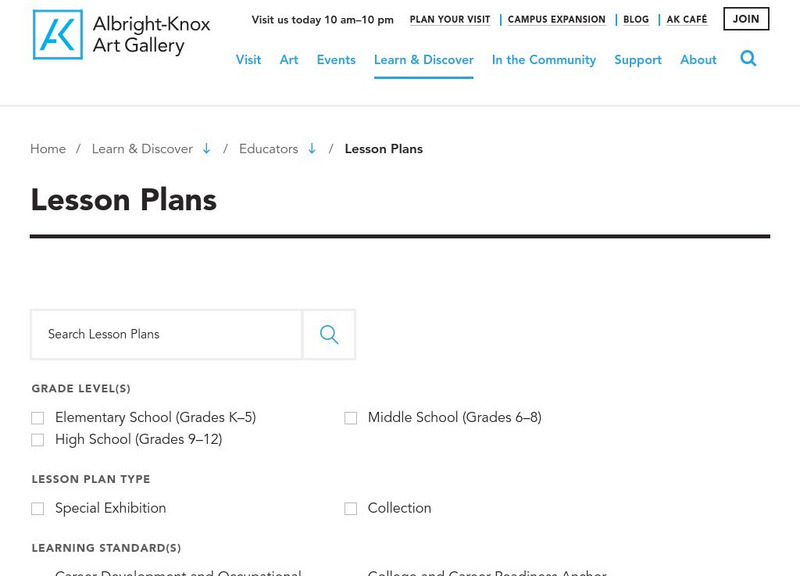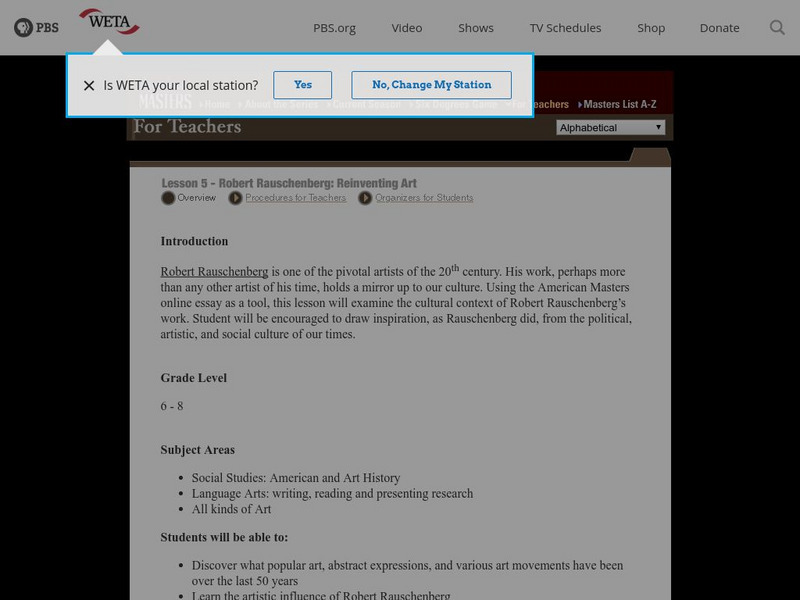Hi, what do you want to do?
Curated OER
Zen Buddhism and Modern Utopia
High schoolers work collaboratively to analyze the various religious beliefs of Zen Buddhists. Emphasis is placed upon class discussion and the ideal of a Utopian environment or society.
Curated OER
Social Studies: Micronesian Independence Day
Learners pretend that they are visiting a relative in Micronesia and compare its Independence Day with the U.S. holiday. They compare the two countries' flags while older students in grades three through five create travelogues. Younger...
Curated OER
Welcome to Leonard Bernstein's New York
Students study the life and musical work of Leonard Bernstein. They examine the history of New York City using three Broadway musicals in a web based lesson plan. They create a portrayal of their own town in this multi-lesson plan activity.
Curated OER
BEAN and SEED MOSAIC
To gain the pupils' attention pose the following question: How many of you know what Cinco de Mayo is and who it is important to? After some discussions on the students' responses explain to them exactly what Cinco de Mayo is and its...
Curated OER
1668 Map of Newark Activity
Eleventh graders read a map for historical information, decipher a map legend and symbols, and expand their knowledge of a historic time.
Curated OER
Exploring New Frontiers
Students gather information about the contributions of various explorers. Using the internet, they discover the many viewpoints of those who conquered new frontiers. They examine and compare life 200 years ago to their life today.
Curated OER
Indiana Travel Guide
Fourth graders create a travel guide about the state of Indiana with 100% accuracy. They label the capital within the travel guide with 100% accuracy. Students label one major river in the right location with 100% accuracy. They circle...
Curated OER
Early North Carolina Exploration (warm-up activity)
Eighth graders focus on the European perspective of exploration and findings along the North Carolina coast.
Curated OER
Mapping the Border
Students create maps of the borderland region. They decorate their maps with colors, pictures, icons, scenes, words that reflect their understanding of the character and history of the borderland.
Curated OER
Biography of the Millennium: 100 People, 1000 Years (4 Parts)
Students explore who are the most influential people of the past thousand years.
Albright-Knox Art Gallery
Albright Knox Art Gallery: It All Adds Up to Art
Lorna Simpson creates evocative works that examine how combinations of pictures and texts create new meanings that do not exist in the images or words alone. This lesson plan explores the concepts she works with, including African...
Smithsonian Institution
Smithsonian Education: The Art and Life of William H. Johnson
With this leasson plan, students will learn about prominent African American artist William H. Johnson and his influence both on the history of art and black American culture. Select a link for the desired grade level version of this...
Smithsonian Institution
Smithsonian Education: Art to Zoo: Landscape Painting
This lesson plan uncovers the "tricks" artists use when creating a landscape painting. Students will explore the work of American artists George Catlin, Albert Bierstadt, Thomas Moran, and Winslow Homer. One of the activities is in spanish.
Albright-Knox Art Gallery
Albright Knox Art Gallery: How Observant Are You?
Pop artists of the 1960s encouraged people to look more closely at the everyday objects around them. How observant are your students? This lesson plan focuses on observation, memory, and home and classroom environments.
Albright-Knox Art Gallery
Albright Knox Art Gallery: Can It?
Pop artists used consumer products, advertising, and popular culture icons as the major source for subject matter in their art. Between 1962 and 1967, Andy Warhol painted soup cans, both individually and in groups. 100 Cans is one of the...
Albright-Knox Art Gallery
Albright Knox Art Gallery: 3 D "Special Space" Painting
Jim Dine's Child's Blue Wall combines sculpture and painting. It is both a realistic depiction of a child's bedroom and an abstract painting of a night sky. This lesson plan explores how Dine accomplished these two ideas in the same work...
Kinder Art
Kinder Art: Norval Morrisseau (Lesson Plan)
A wonderful educational art site from KinderArt that includes creating a work of art in a style similar to that of Morrisseau. Includes a short biography, art vocabulary, and information on Ojibwa culture.
Albright-Knox Art Gallery
Albright Knox Art Gallery: Three Ways to Make a Scene
Young scholars will analyze landscapes by three artists. After learning about the horizon line, they will create their own painted and collaged landscapes inspired by one of the artists.
Albright-Knox Art Gallery
Albright Knox Art Gallery: Having Fun With Landscape Photography
John Pfahl used creativity, strategic placement of objects, changing vantage points, and a sense of humor to create his Altered Landscape series of photographs. Students will learn about his artist statements and methods and then create...
Albright-Knox Art Gallery
Albright Knox Art Gallery: Paul Sharits: Thinking in a New Way About Movies
Information about 16mm films made by Paul Sharits is packed into his two-dimensional drawings on graph paper. Young scholars will learn about how film works to understand how to translate Sharits's drawings into information about his...
Albright-Knox Art Gallery
Albright Knox Art Gallery: Grid Self Portrait
This lesson plan explores how Chuck Close uses photography and a mathematical grid to create his large portraits. Hands-on activities encourage young scholars to create using the grid, during which they will learn about variation,...
PBS
Pbs American Masters: Robert Rauschenberg: Reinventing Art
Studying the life and work of Robert Rauschenberg, we see a reflection of American culture. Click his name to a full biography and timeline.
John F. Kennedy Center
The Kennedy Center: Five Artists of the Mexican Revolution
In this 9-12 instructional activity, students will create original artwork demonstrating the style of an early 20th-century artist of the Mexican Revolution. They will research how art was influenced or created in response to major...
Maine Historical Society
Maine Historical Society: How 19th Century Artists Viewed the Separation of Civilization and Nature
Combining art and literature, this lesson takes a look at how artists drew the line between civilization and wilderness in 19th century America.
















